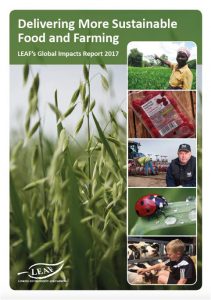 LEAF (Linking Environment And Farming)’s fifth Global Impacts Report shows substantial progress in its mission to inspire and enable sustainable farming. Download full report
LEAF (Linking Environment And Farming)’s fifth Global Impacts Report shows substantial progress in its mission to inspire and enable sustainable farming. Download full report
Author Archives: Andreas Frangenberg
EISA Annual Report 2016 published
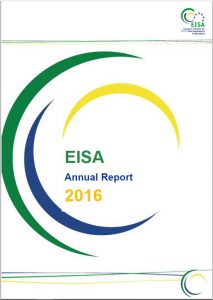 Growing Awareness for Integrated Farm Management (IFM)
Growing Awareness for Integrated Farm Management (IFM)
EISA Annual Report 2016 gives overview of activities on the European and national levels / Raising awareness for solutions which IFM brings in relation to competitive food production and UN’s Sustainable Development Goals as a key objective / Farmers of the EISA Farm Network as ambassadors for sustainable agriculture in Europe
EISA Annual Report 2016
 Foreword
Foreword
The European Initiative for Sustainable Development in Agriculture (EISA) was founded with the common aim of developing and promoting Integrated Farm Management (IFM) throughout Europe. Integrated Farm Management is a sustainable system which helps farmers improve the way they farm for the profitability of their business, the benefit of the environment, and social responsibility, including all important aspects of sustainable development. A detailed description and characterisation of Integrated Farm Management is available on the EISA website www.sustainable-agriculture.org.
In 2016, national organisations from France, Luxembourg, Germany, Hungary, the United Kingdom, Sweden and the Netherlands supported EISA as full members, and six organisations from the agricultural supply chain supported the organisation’s work as Associate Members. EISA works closely with EU institutions and other stakeholders to contribute to the development of agricultural and environmental policies in Europe.
EISA members help create a better public understanding of agriculture through a Network of Working Farms and various other communication and demonstration activities. They bring farmers and consumers together to raise awareness of how farmers are working in harmony with nature to efficiently produce good, safe food and renewable resources with economic, environmental and social care.
The EISA Annual Report 2016 presents an overview on EISA’s and National EISA Members’ activities as well as brief descriptions of the organisation’s six Associate Members. Many of EISA’s and EISA members’ activities are part of long-lasting projects often being performed year after year or even several times per year.
If you are interested in receiving further information or in getting involved on the national or the European level, you are more than welcome to contact EISA and EISA members for more details. (Read full Annual Report here)
Patrick Wrixon, EISA President
Dreams of Organic Farming – Facts and Myths
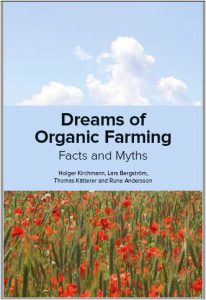 Interesting paper published by Holger Kirchmann, Lars Bergström, Thomas Kätterer and Rune Andersson in 2016
Interesting paper published by Holger Kirchmann, Lars Bergström, Thomas Kätterer and Rune Andersson in 2016
Our book is intended to bring to the wider public a basic understanding of organic farming, in Sweden and more generally. While our research naturally has a local focus, we find the effects this type of agriculture has on food supply and the environment apply to the wider world from Europe and beyond.
Organic farming receives significant public attention with an assurance that this form of agriculture is good for the environment and provides safe, wholesome foods. This, in turn, has led to organic forms of production receiving public financial support inSweden, as in other countries, mostly in Europe. In Sweden, national agri-environmental payments total … (link to full publication)
Raising Awareness for Integrated Farm Management
 Statement of Martijn Buijsse, EISA Policy Officer,
Statement of Martijn Buijsse, EISA Policy Officer,
at the meeting of the Civil Dialogue Group “Agriculture“ in Brussels on Thursday, December 16, 2016:
My name is Martijn Buijsse and I represent EISA, the European Initiative for Sustainable Development in Agriculture. We want to raise awareness… Read more
EISA: Enhancing biodiversity through Integrated Farming – a viable alternative to organic farming
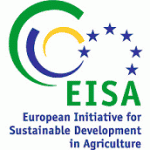 Presentation by Martijn Buijsse, EISA Policy Officer, to the European Biodiversity Conference in Brussels, on 7 December 2016. Hosted by MEP Karl-Heinz Florenz, the conference provided an excellent opportunity to present contributions of Integrated Farming to maintaining and enhancing biodiversity on farms. Look at the presentation in detail …
Presentation by Martijn Buijsse, EISA Policy Officer, to the European Biodiversity Conference in Brussels, on 7 December 2016. Hosted by MEP Karl-Heinz Florenz, the conference provided an excellent opportunity to present contributions of Integrated Farming to maintaining and enhancing biodiversity on farms. Look at the presentation in detail …
The Farre IPM Toolbox rewarded
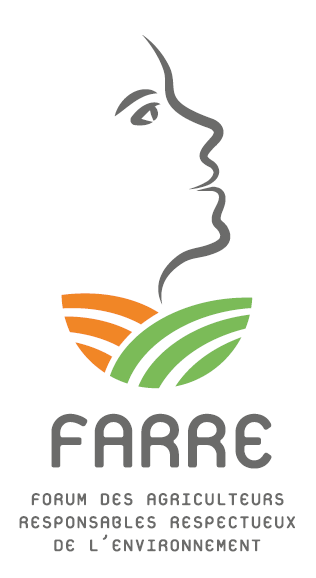 Paris, November 2016
Paris, November 2016
As part of 7th Farmers Victories, a competition organised by Syrpa, (French agri-communicants network), the www.boitagri.com website, also called “IPM Toolbox”, was distinguished in the “Sharing & New ideas” category. After being selected by a jury of experts … read more
Healthy animals: key to sustainable food production
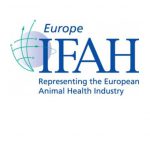 Brussels, 01 December 2016
Brussels, 01 December 2016
The animal health industry plays a significant role in ensuring a sustainable food production by contributing to all three pillars of sustainability.
• Society: Food safety and security through animal health and welfare
• Economy: Less animal mortality and production losses
• Environment: Reduced environmental impact through a better use of natural resources
Read more in our paper and the info-graph on the contribution of healthy animals to sustainable food production.
Improved crop modelling for supporting policy design on climate change impacts, adaptation and mitigation — CropM in MACSUR
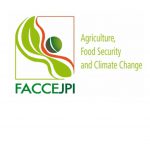 FACCE MACSUR Policy Brief 2
FACCE MACSUR Policy Brief 2
The second MACSUR policy brief, produced by the CropM coordination team, has been published. It focuses on the improvements in crop modelling that now allow conducting a comprehensive assessment of climate change impacts, and identifying adaptation and mitigation options for Europe at multiple scales. The work also provides the background for further significant contributions to IPCC assessment reports. The policy brief is available from the MACSUR web site and is published as FACCE MACSUR Reports 9: H0.3-D2.
European Antibiotic Awareness Day 2016: Video pledge featuring EPRUMA’s chairman
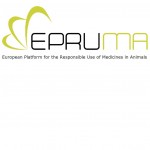 EPRUMA has published a short video pledge on the occasion of European Antibiotic Awareness Day (18.11.2016).
EPRUMA has published a short video pledge on the occasion of European Antibiotic Awareness Day (18.11.2016).
